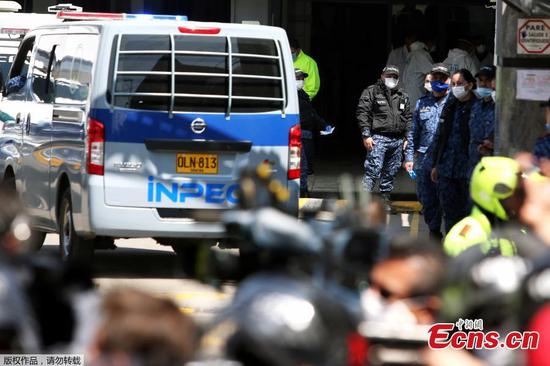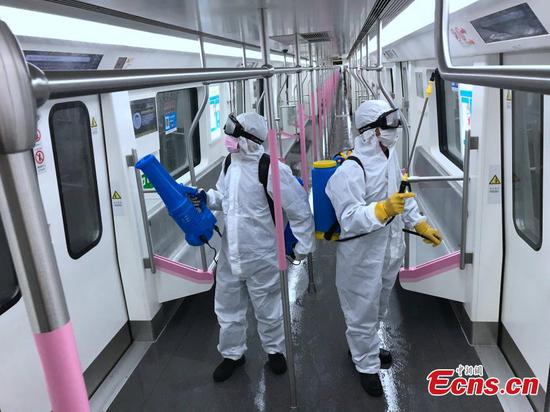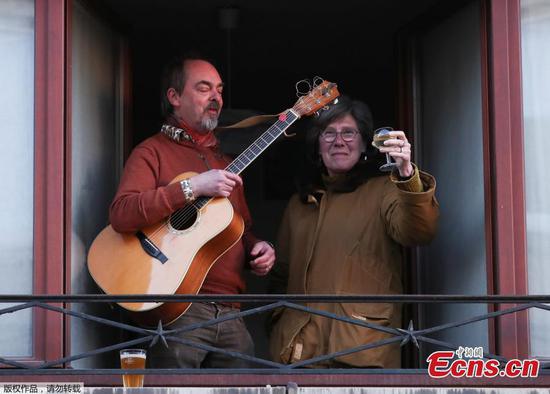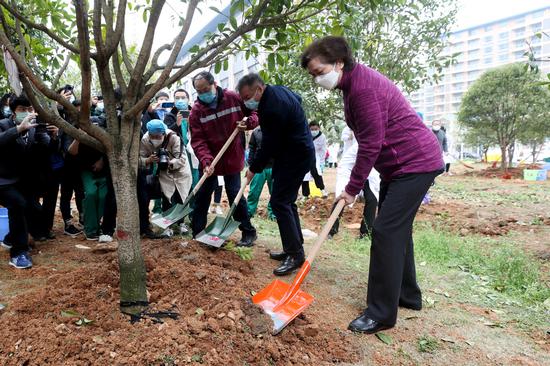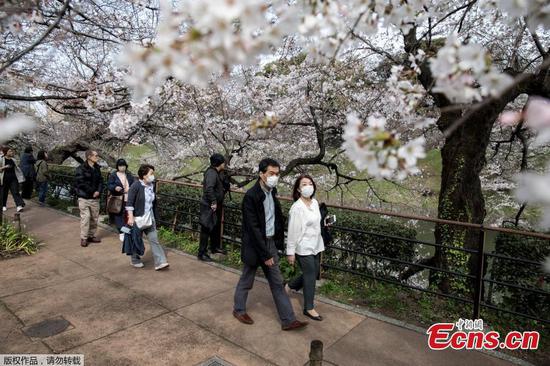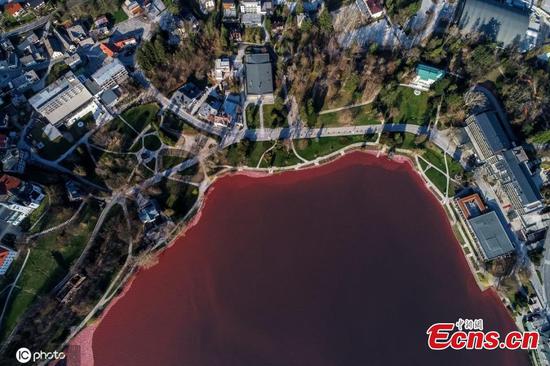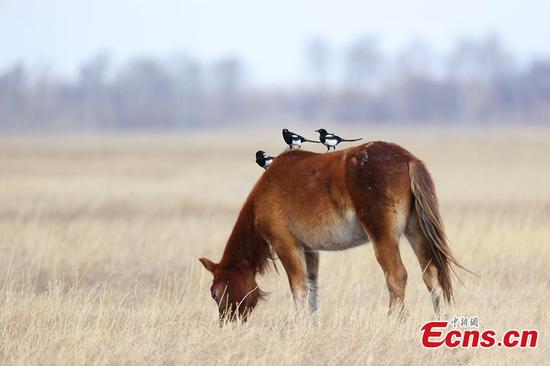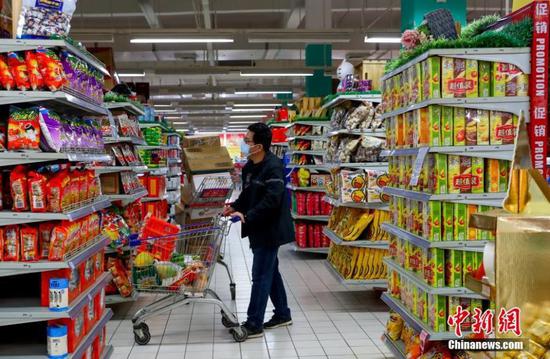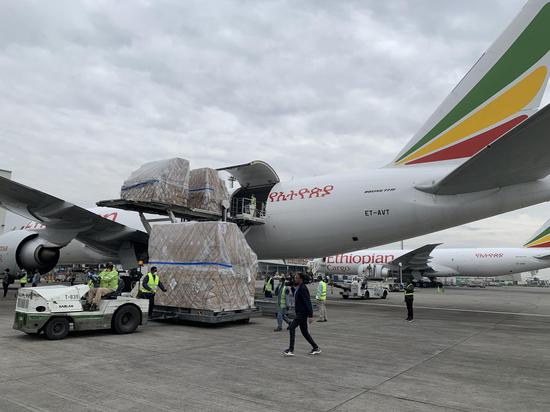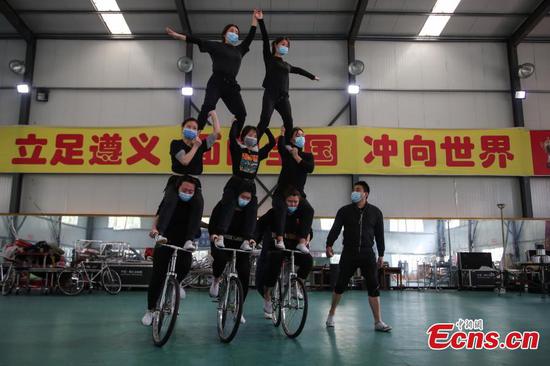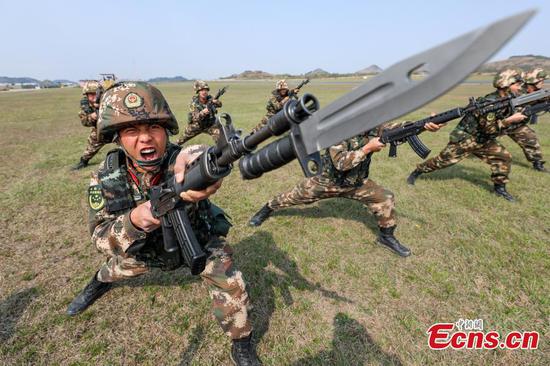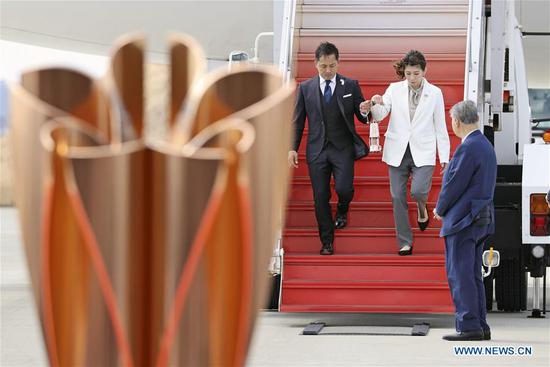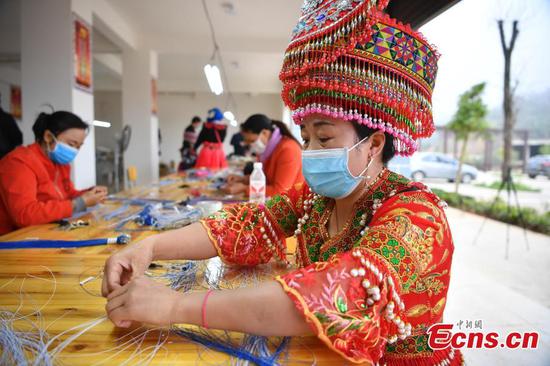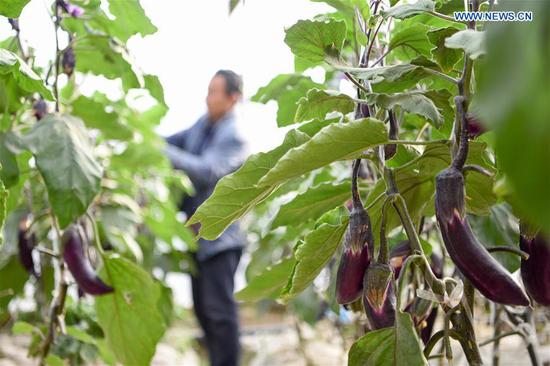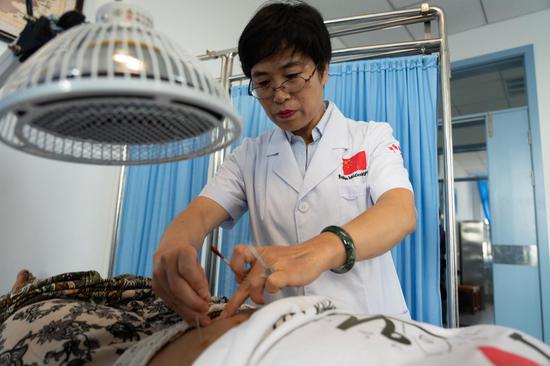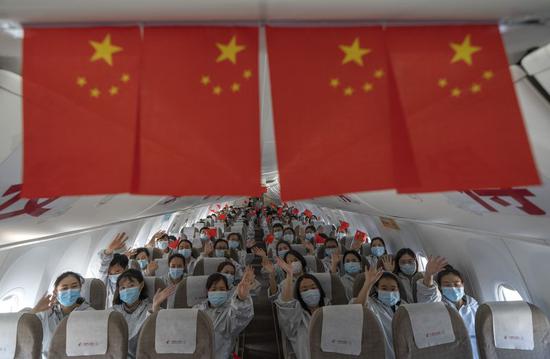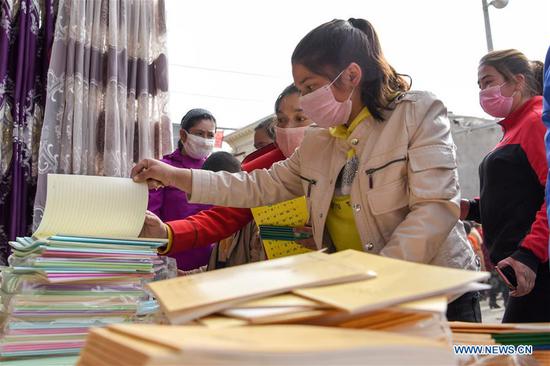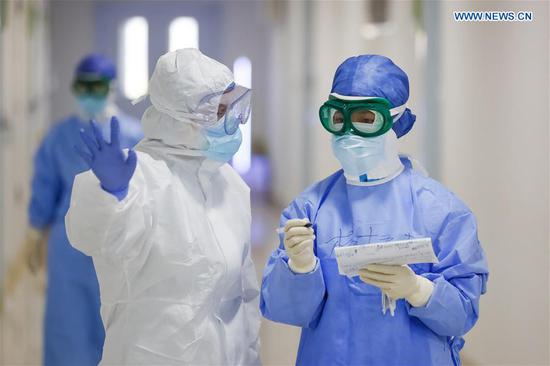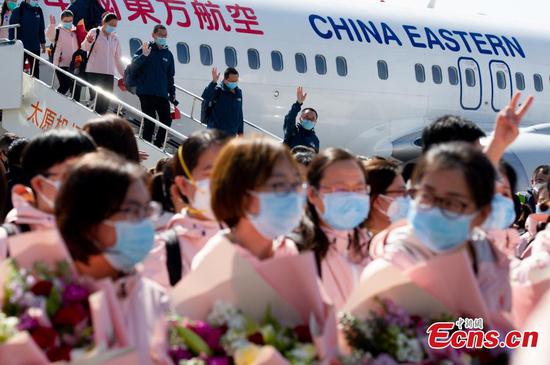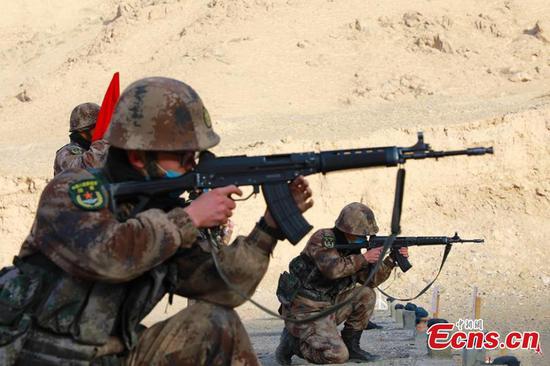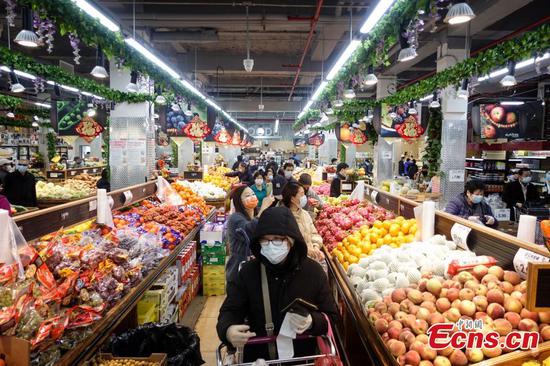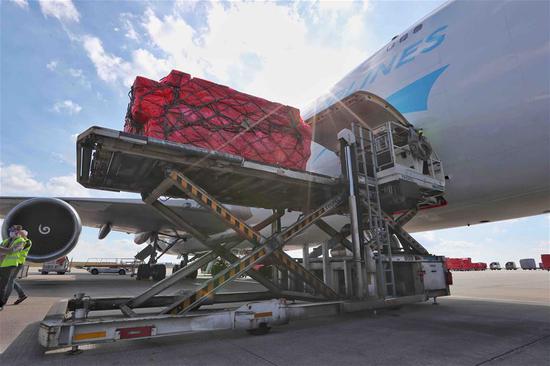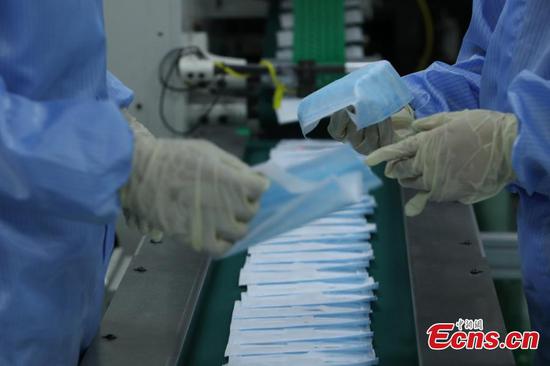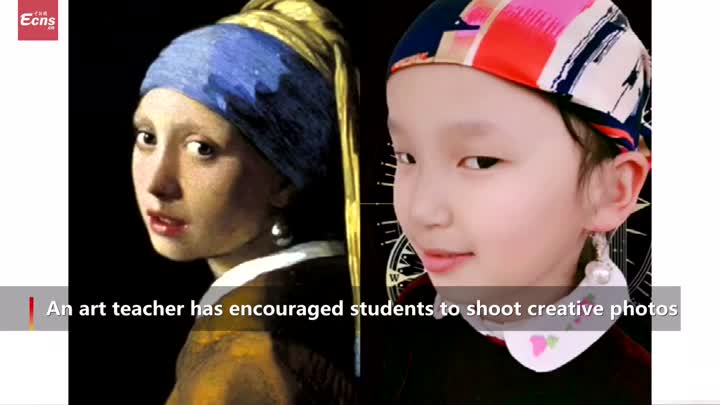As COVID-19 cases soared worldwide, China, despite its own severe situation, has been actively offering medical aid and sharing prevention and treatment experience to help curb the novel coronavirus spread.
Experts say that China's efforts to contain the spread of the virus worldwide show how the country works together with the international society to build a community of a shared future for humanity in the face of this global public health challenge.
DONATING SUPPLIES, DISPATCHING EXPERTS
On Monday, a team of Chinese medical experts arrived in Cambodia to help the country fight the COVID-19 pandemic.
China has been joining hands with the world to fight COVID-19 by donating medical supplies and sending professional medical teams to epidemic-stricken countries.
Ten days after Iran reported its first confirmed case on Feb. 19, a medical team sent by the Red Cross Society of China arrived in Tehran. At that time, China was in the thick of battle against the disease.
Upon their arrival, the experts immediately engaged in exchanging experience on combating COVID-19 with their Iranian counterparts and promoting bilateral cooperation on medicine and health.
The Chinese medical team in Iran has set "an excellent example of 'peer-to-peer' experience sharing," said Maria van Kerkhove, technical lead for the WHO's Health Emergencies Program.
On March 7, a Chinese team of seven health experts arrived in Baghdad to provide guidance and medical assistance to contain the COVID-19 outbreak in Iraq.
"I do believe the experience of China in terms of clinical management is a wealth for this country to benefit from," said Adham Abdel-Moneim, WHO representative in Iraq.
In addition, a charter flight carrying a 9-member Chinese aid team arrived at Rome's Fiumicino Airport on March 12, as part of China's efforts to help Italy contain the outbreak.
The Chinese medical team also brought tonnes of medical supplies, including ventilators, monitors, defibrillators and 30 sets of ICU equipment.
Also, approximately eight tonnes of medical supplies provided by the Chinese government to Greece after Athens' urgent request arrived Saturday morning at Athens international airport on an Air China flight.
"We are deeply honored and grateful, and we hope that you will continue to show these sentiments of help and support to the Greek people," Greek Health Minister Vasilis Kikilias said.
On Saturday evening, a team of Chinese medical staff with experience in fighting COVID-19 arrived in the Serbian capital to help with the Balkan state's battle against the virus.
The Chinese medical team came over with ventilators, medical masks, test kits, and other medical supplies in the first batch of 16 tonnes of donations.
"We give them our immense gratitude, especially for sending their experts. They have proven as friends in the most difficult times when we fight for lives of Serbian people," said Serbian President Aleksandar Vucic.
Tiding over difficulties together during testing times has become a true portrayal of China and Serbia in building a community with a shared future, foreign ministry spokesperson Geng Shuang told a press briefing.
"China would like to work with the international community, including Serbia, to overcome this epidemic and protect regional and global public health security," Geng said.
The Chinese government has announced assistance to 82 countries, the World Health Organization and the African Union, including test kits, masks and protective suits. Many batches of supplies have reached the recipients, China's foreign ministry said Friday.
SHARING DIAGNOSIS, TREATMENT EXPERIENCE
Chinese authorities and medical experts have been sharing the country's anti-epidemic experience with peers in affected countries via various methods such as publishing prevention and treatment guidelines and holding video conferences.
China has published seven guidelines on COVID-19 diagnosis and treatment and six guidelines on prevention and control, all of which have been translated into multiple foreign languages.
According to the National Health Commission, China has so far shared such guidelines with more than 100 countries and over 10 international and regional organizations.
Meanwhile, Chinese experts and officials have shared their experience in fighting the disease with the international community through video conferences, including the Africa Centers for Disease Control and Prevention (Africa CDC) and 24 African countries.
Ethiopian Minister of Health Lia Tadesse spoke highly of the video conference organized by the Chinese government, saying China has shared "amazing experience in curbing this outbreak" with African countries.
On Thursday, an experience-sharing meeting on China's COVID-19 control and prevention was broadcast live to the world. Leading frontline experts such as Zhong Nanshan and Li Lanjuan talked about the control measures and treatment methods China has taken and answered questions from foreign experts and netizens.
On Friday night, Chinese experts in traditional Chinese and western medicines also shared their experience via video call in treating COVID-19 patients with peers from Italy, the United States, Belgium, Japan, and the WHO.
"The best experience of China is to admit all patients to hospitals..." "Doing so can also prevent patients with mild symptoms from progressing into severe cases, which therefore decreases the fatality rate..." Chinese experts gave an extensive amount of practical information based on their experiences in fighting the virus.
"We are very thankful for the great work that's been done in China and other Asian countries because it's demonstrating it is possible to stop this outbreak," Margaret Harris, a WHO spokesperson said in the video conference.
China is also gearing up to offer online help for overseas individuals.
Two internet platforms Baidu Health and JD Health launched medical and psychological consultation services for people, including overseas Chinese in epidemic-stricken regions.
"With openness, transparency and a high sense of responsibility for global public health security and people's well-being, we will continue information-sharing with the international community," foreign ministry spokesperson Geng Shuang said earlier at a news briefing.









